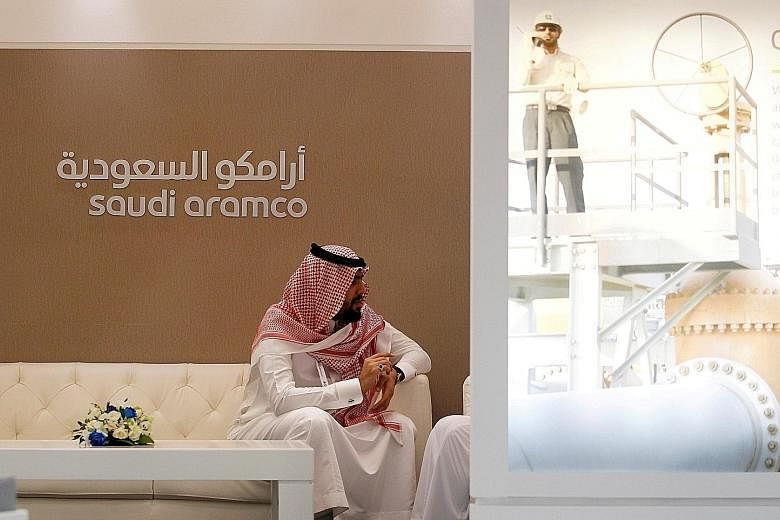RIYADH • Saudi Arabia has slashed the tax rate paid by state oil producer Saudi Aramco, a key milestone in preparing the company for what may be the world's biggest initial public offering.
Aramco's income tax, paid on the company's profit, is being cut to 50 per cent from 85 per cent, chief executive officer Amin Nasser said in an e-mailed statement on Monday.
As the centrepiece of plans to overhaul the economy of the world's largest oil exporter, Saudi Arabia aims to sell as much as 5 per cent of the company late next year in an IPO that the kingdom estimates could value the business at US$2 trillion (S$2.8 trillion).
"The new tax rate will bring Saudi Aramco in line with international benchmarks," Mr Nasser said.
The new tax rate is effective retroactively from Jan 1.
Deputy Crown Prince Mohammed bin Salman's US$2 trillion valuation, based on Aramco's right to exploit the kingdom's giant oil reserves, would see the sale raise US$100 billion and dwarf Alibaba Group's debut as the largest IPO in history. But others have said that valuation could be ambitious, given uncertainty about oil prices, the future of fossil fuels and political risks in the Middle East.
The tax cut will increase Aramco's net income by 300 per cent, potentially valuing the company at US$1 trillion to US$1.5 trillion, Sanford C. Bernstein said in a March 28 report. Its per-barrel profit is expected to be in line with oil majors such as Exxon Mobil, it said.
Reducing the company's income tax payments by more than 40 per cent will free up billions of dollars of cash flow that Aramco can pass on as higher dividend payments, a step seen as crucial to enticing investors to the IPO and maximising the company's valuation. It will also shake up the kingdom's finances: the state relies on taxes on oil production for about 60 per cent of government revenue.
"The 50 per cent tax rate will be very lucrative to investors who should be gearing up for its privatisation," said Mr John Sfakianakis, director of economic research at the Gulf Research Centre Foundation in Riyadh, in an e-mailed statement. "This is one of many steps that will begin a process of investor-friendly initiatives that will help in whetting appetites."
The Aramco share sale is part of policy proposals by Prince Mohammed to set up the world's biggest sovereign wealth fund and reduce the economy's reliance on hydrocarbons. Saudi Aramco's crude oil reserves are estimated at 260 billion barrels.
While Aramco has yet to reveal any detailed financial information, setting a lower income tax rate will remove one of the most important variables as the global investment community sizes up the deal. As well as income tax, Aramco pays a 20 per cent royalty on revenue, a levy that Monday's announcement left unchanged.
The fact that Saudi Arabia's Finance Ministry will need to depend on dividends from Aramco, whose fields pump more than 10 million barrels a day, means that potential investors can probably rely on stable payments.
BLOOMBERG

